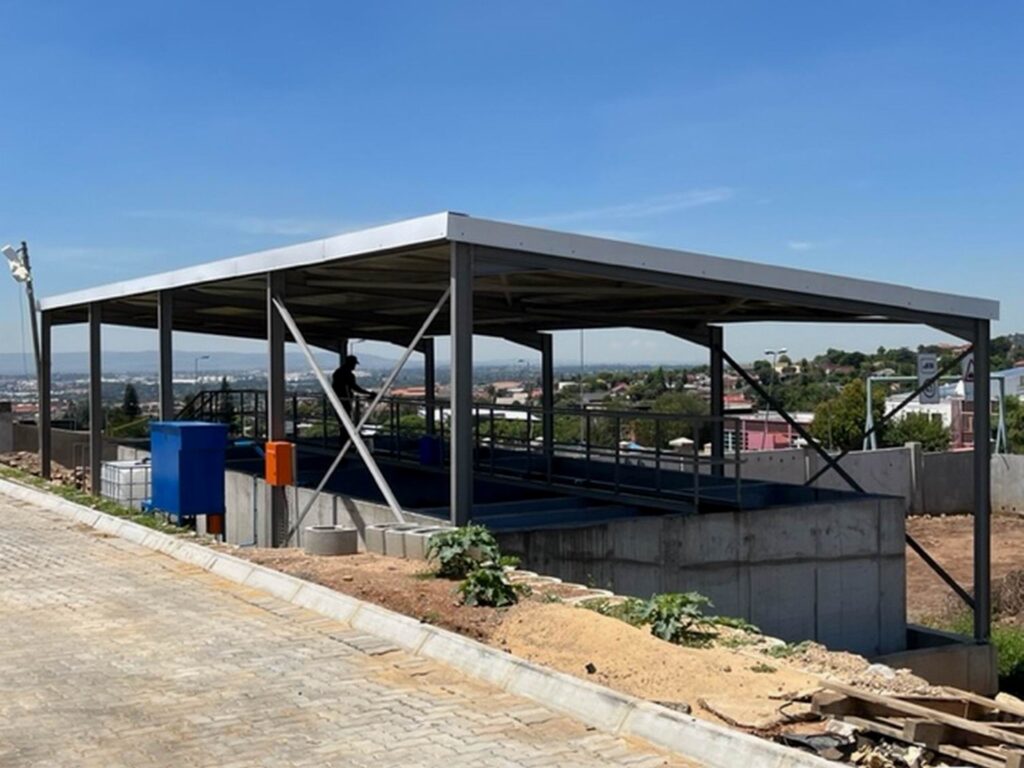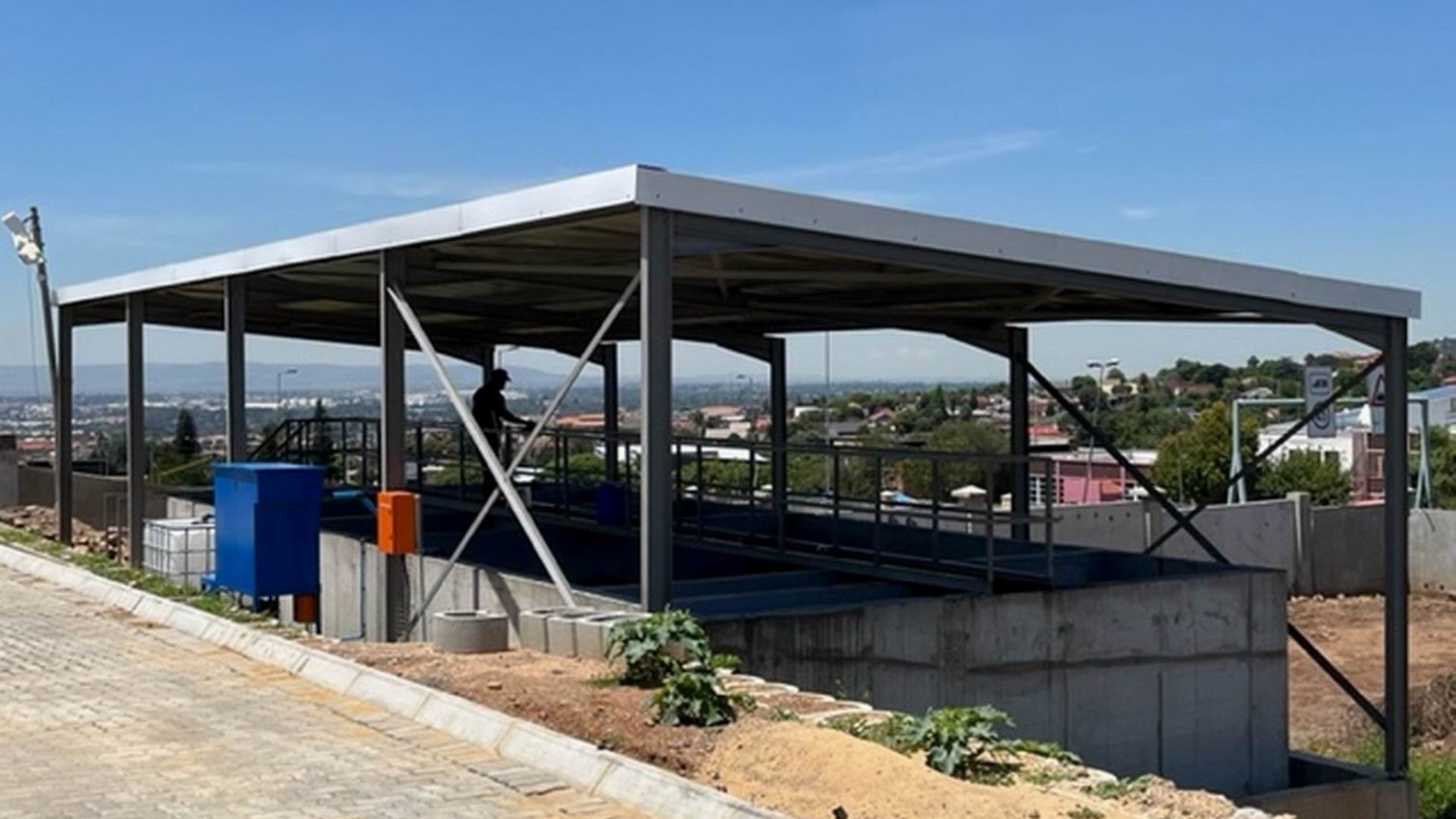Industrial wash-bays are designed to clean vehicles of hydrocarbons like oil, grease, fuel and chemicals. It’s therefore important that wash-bay wastewater is properly treated to ensure compliance with water management and environmental regulations.
Anelia Hough, water treatment consultant at Allmech, explains that wash-bay wastewater treatment ensures companies are undertaking responsible water management, as well as compliance with environmental regulations and more cost-effective business operations. “Water treatment ensures there’s no contamination of groundwater or surface water sources, which would potentially affect drinking water supplies and pose health risks to communities,” she says. “Plus, if wash-bay water is treated correctly, 70-95% of the water is reusable, which has a direct impact on wash-bay businesses’ monthly operating costs.”
Rheini-Chem, an expert tank-cleaning company, manages various wash-bays for commercial trucking companies, servicing light commercial vehicles through to heavy-duty industrial trucks and tankers.
The company operates with a special effluent permit, which means it needs to comply with specific wastewater limits, or it risks financial penalties. Rheini-Chem therefore approached Allmech, leading boiler manufacturers and suppliers to the water treatment industry, to set up a water treatment system for one of its wash-bay facilities in Johannesburg South. Based on the results, the company is partnering with Allmech for a system at a second wash-bay in Brackenfell in the Western Cape.
“Allmech designed a wastewater treatment plant that ensures we reduce total suspended solids (TSS), hydrocarbons, turbidity, reduce Chemical Oxygen Demand (COD) and Biological Oxygen Demand (BOD) levels in the wastewater The depending on the wastewater permit limits municipalities generally monitor pH, TSS, BOD and COD levels in the wastewater and if these parameters are out, they impose penalties to the clients. For wastewater treatment plants, the BOD is important as it shows the organic pollution in the water. It tells us how much oxygen is needed in the water to break down the organic material. This is critical when dealing with biological wastewater treatment plants,” says Hough. “We also have an online pH monitoring and correction system to ensure pH levels are within permit specifications.”
Allmech also undertakes monthly water treatment service and monitoring of boilers at the wash-bays, as well as supplying boiler water treatment chemicals. Hough says the company is also able to design, install and service water recycling plants to help wash-bay clients with reducing water consumption.
“By treating and recycling water, industries can reduce the demand for municipal feed water, which is particularly important in areas with water scarcity or where clients are looking at alternatives to reduce daily operating costs,” she says. “Recycling water can reduce the water demand from feed water source between 70-95%, depending on site conditions. An additional benefit of a wastewater recycling system is that the client has a constant back up of water and is not affected by municipal shutdowns.”
In Rheini-Chem’s case, Hough says the water treatment plant incorporates several phases. The primary treatment phase is called anaerobic settling. Wastewater is piped into settling tanks, and separates into layers: an upper liquid layer (generally oils), and a sludge layer at the bottom. The phase is a biological process where microorganisms degrade organic contaminants in the absence of oxygen. “It is typically deployed for streams with high concentrations of organic material, often seen in wash-bays,” says Hough. “The benefit of including this process in wash-bay application is that it’s efficient in the removal of organic compounds, to lower BOD and COD levels.”
The second phase is aerobic: oxygen is introduced for nutrient removal and odour control. The third phase includes mechanical filtration, and finally there’s monitoring and dosing, which entails measuring water quality and adding chemical treatment as required.
“The systems are site-specific and designed as modular units,” says Hough. “In essence, clients can add phases as required to implement a fully operational water treatment and recycling plant on their site.”



